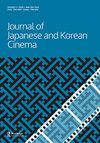Discourse on Joseon cinema I (Chunchu 2, no. 11, November 1941) Im Hwa
引用次数: 0
Abstract
In Discussing Joseon cinema, it is first necessary, though most ordinary, to consider the circumstances of the formation of Joseon cinema. No doubt Joseon cinema is a kind of Joseon’s modern culture in a comprehensive sense as well as an object originating from the formation of Joseon’s modern culture. This is the most self-evident fact for which there is no room for reconsideration. However, it is necessary to reflect upon the circumstances of Joseon cinema’s formation at the moment, because in any event, it is easy to regard film with bias. Needless to say, there are certain reasons for anybody speaking of film, whether it be a person directly involved with film or an unrelated third party, to be captivated by the bias to specify it as a particular form of art. This is because film is undoubtedly a distinctive form of art. In the history of other culture and art of all mankind, which have long traditions of thousands of years, it may be utterly inconceivable to think of the history of film, when it has less than half a century of tradition. It may be hard to imagine that a culture or art that has been formed in less than half a century may have a form and meaning of its own. Nonetheless, it is an undeniable fact that film is a culture and art of today. If this admirable contemporaneity is one reason to conceive film with a particular bias, another reason would be, let’s say, its commercial nature. At any rate, this other reason for fostering a temptation to isolate the history of film from that of the rest of the other culture and art seems to be found in its commercial nature and particular process of filmmaking. Though I know not enough to inquire further into this matter, I at least know there will no longer be a reason for film to be received with bias and regarded in isolation, considering the solemn fact that Joseon cinema is a culture based on Joseon people’s modern life upon which it has formed as an art form. I know it even without inquiring into every case of how film, from its invention to this day, has formed relationships with literature, visual arts, theater, and music. Besides, self-righteously thinking or arbitrarily judging the future and course of Joseon cinema would be an irresponsible manner of reasoning. Film may be considered to yield pleasure or even sheer amusement at times, but this is not a feature unique to film alone. Literature, theater, and music could also be the object of pleasure and hobby under certain circumstances; moreover, all forms of art amuse people to some degree. Therefore, to hastily regard film alone to be an amusement would be taking the trouble of disparaging film, or making an unreasonable attempt at isolating it from culture and art in general. Regarding solely film as amusement is a tendency that is mostly supported by or originated from film industrialists. But a genuine and healthy spirit of film culture would be one that safeguards the essential principles of art culture论朝鲜电影I(1941年11月11日《春初2》)Im Hwa
在讨论朝鲜电影时,首先有必要考虑朝鲜电影形成的环境,尽管这是最普通的。毫无疑问,朝鲜电影是全面意义上的朝鲜现代文化的一种,也是源于朝鲜现代文化形成的一个客体。这是最不证自明的事实,不容重新考虑。但是,有必要对朝鲜电影的形成环境进行反思,因为无论如何,人们很容易对电影产生偏见。不用说,任何人,无论是与电影直接相关的人还是与电影无关的第三方,都有一定的理由被将电影指定为一种特殊的艺术形式的偏见所吸引。这是因为电影无疑是一种独特的艺术形式。在具有几千年悠久传统的人类其他文化和艺术史中,电影的历史只有不到半个世纪的传统,这可能是完全不可想象的。也许很难想象,在不到半个世纪的时间里形成的一种文化或艺术可能有自己的形式和意义。然而,电影是当今的一种文化和艺术,这是一个不可否认的事实。如果说这种令人钦佩的当代性是我们对电影抱有某种偏见的一个原因,那么另一个原因就是,比如说,它的商业性质。无论如何,促使人们将电影史与其他文化和艺术割裂开来的另一个原因,似乎在于它的商业性质和电影制作的特殊过程。虽然我所知不多,无法深入探究,但至少我知道,考虑到朝鲜电影是建立在朝鲜人民现代生活基础上的文化,并以此为基础形成了一种艺术形式,这一庄严的事实,电影将不再有理由被偏见地接受和孤立地看待。即使不去探究电影从发明到今天是如何与文学、视觉艺术、戏剧和音乐形成关系的,我也知道这一点。此外,自以为是地思考或武断地判断朝鲜电影的未来和道路,是不负责任的推理方式。电影有时可以带来愉悦甚至纯粹的娱乐,但这并不是电影独有的特征。在某些情况下,文学、戏剧和音乐也可以成为娱乐和爱好的对象;此外,所有形式的艺术都在一定程度上给人们带来娱乐。因此,匆忙地将电影单独视为一种娱乐,将是在贬低电影的麻烦,或者是在不合理地试图将它从文化和艺术中孤立出来。将电影视为娱乐是一种主要由电影工业家支持或起源于电影工业家的趋势。但真正健康的电影文化精神应该是一种维护艺术文化基本原则的精神
本文章由计算机程序翻译,如有差异,请以英文原文为准。
求助全文
约1分钟内获得全文
求助全文
来源期刊

Journal of Japanese and Korean Cinema
Arts and Humanities-Visual Arts and Performing Arts
CiteScore
0.60
自引率
0.00%
发文量
16
期刊介绍:
Journal of Japanese and Korean Cinema is a fully refereed forum for the dissemination of scholarly work devoted to the cinemas of Japan and Korea and the interactions and relations between them. The increasingly transnational status of Japanese and Korean cinema underlines the need to deepen our understanding of this ever more globalized film-making region. Journal of Japanese and Korean Cinema is a peer-reviewed journal. The peer review process is double blind. Detailed Instructions for Authors can be found here.
 求助内容:
求助内容: 应助结果提醒方式:
应助结果提醒方式:


